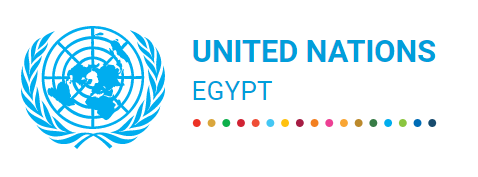Despite recent progress, women in Egypt face significant barriers in accessing formal employment. As a result, only 21 percent of Egypt’s working-age women are participating in the economy, compared to 75% of men. This lack of inclusivity has left many women feeling discouraged from seeking employment altogether. However, training provided by the UNIDO – UN Women Joint Programme ‘Rabeha’ is helping to break down these barriers by empowering women with the skills, tools and confidence to find employment.
On 14 May, the Rabeha programme kicked-off the first in a series of employability skills trainings that target 1,000 women from the governorates of Giza, Fayoum, Beni Suef and Minya. During the trainings and one-to-one coaching sessions, women job seekers gain essential work skills – such as communications, personal branding, teamwork, time and stress management, problem-solving, email etiquette, conflict and negotiations, CV-writing and interviewing skills. In addition, participants work alongside career-development and job-placement specialists who support them in improving their profile and applying for professional jobs.
Ms. Nancy Ibrahim, job seeker and Rabeha training participant in Fayoum
“Without a well-crafted CV, I’ve found that my skills often go unnoticed and I miss out on potential job opportunities. Through the Rabeha programme, I hope to build a professional profile that showcases my competencies and ultimately helps me secure a fulfilling job.” – Ms. Nancy Ibrahim, job seeker and Rabeha training participant in Fayoum.
The Rabeha employability skills trainings are being organised by UNIDO in close collaboration with country partners, including the Medium, Small and Micro Enterprises Development Agency (MSMEDA), which has played a key role in engaging women in the community, especially from rural areas. The trainings are being facilitated by specialists from DCODE Economic and Financial Consulting, who engage with women participants, listen to their challenges and connect them with potential employers.
Closing gender gaps benefits the whole country, not just women and girls. Egypt-specific findings show that that if the female labour participation rate matched that of males’, GDP would increase by 34%.
“Through the Rabeha program we are working together with our partners to address the root causes that limit women’s economic participation. This training focuses on developing women’s skills and creating pathways to employment, helping to ensure their equal participation in Egypt’s economic and social progress.“ – Mr. Ahmed Rezk, UNIDO Deputy Representative Egypt.
The employability skills training is designed to enable women to achieve their full potential and to promote the country’s socio-economic development. To further facilitate this, the Rabeha programme is also organising a match-making event in June that will bring together employers and job seekers to connect women participants with new career opportunities in growth-oriented sectors including date palm, medicinal and aromatic plants and handicrafts.
Efforts like this on the ground demonstrate that the tide is turning for women’s participation in the labour market and gender equality in Egypt may come sooner than expected.
The Rabeha programme aims to support the economic empowerment of more than 6,300 women in 7 governorates through increased access to employment and/or self-employment opportunities. The programme is implemented by UNIDO and UN Women in partnership with the National Council for Women (NCW), the Ministry of Trade and Industry (MoTI) and the Medium, Small and Micro Enterprises Development Agency (MSMEDA), with the generous support of Global Affairs Canada (GAC).

